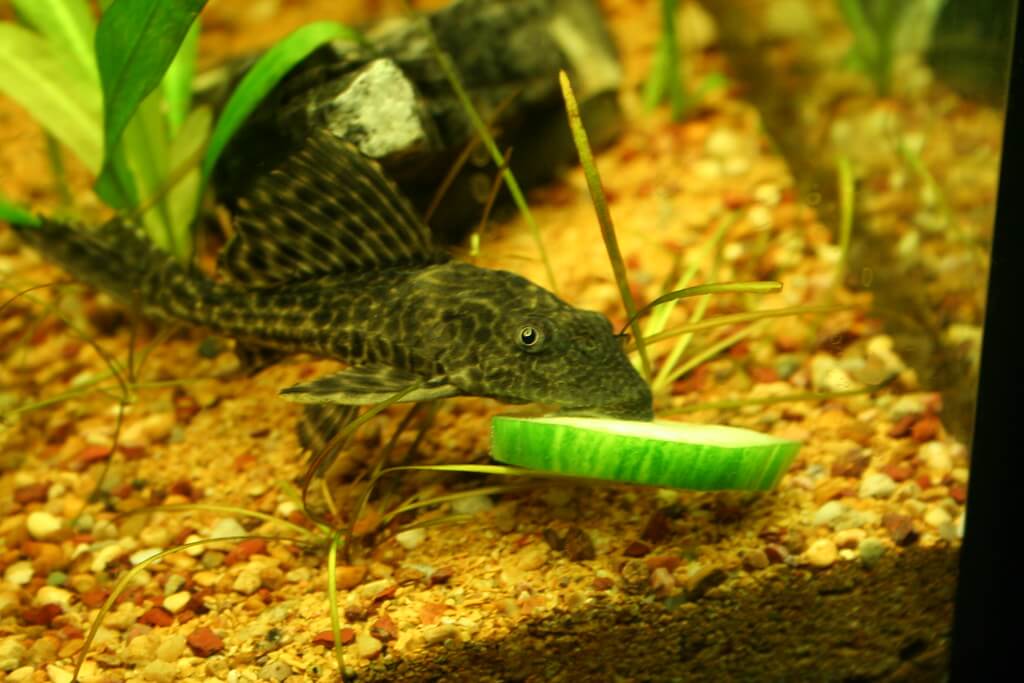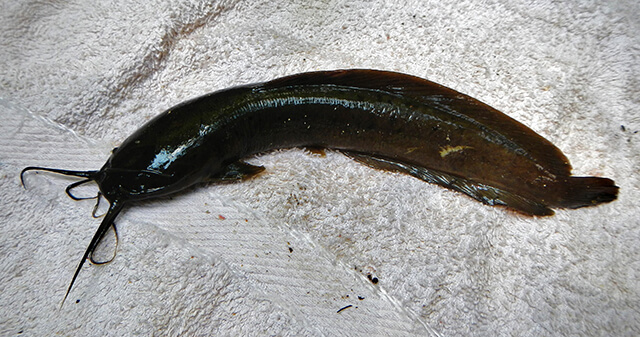Banned Aquarium fishes in India
Probably you have an aquarium and you want to keep some exotic fish species in it; something that is not very common. So, far so good. We all want to keep beautiful, out of the ordinary fishes in our fish tanks.
But some exotic fish species may be dangerous to us or other fishes. So much so, that they have been banned in India to a large extent. You must be aware of such fishes.
In this article, we are going to learn about various of these fish species that are banned in India. Obviously, you cannot keep them in your aquariums, or release them in ponds and rivers.
 Table of Contents
Table of Contents- Common Pleco Fish
- Thai Mangur Fish (African Catfish)
List of banned aquarium fishes in India
Here’s a list of some of the fishes that have been banned in various Indian states due to various reasons. States like Karnataka and West Bengal are leading fish trading and cultivation states in India, and so these states are also the first ones to ban foreign, invasive, predator fishes (to safeguard local fishes and aquatic biodiversity).
Common Pleco Fish
Common Pleco (Sucker Catfish) has been banned by many states in India, e.g. Karnataka.

Many people keep pleco fishes to keep the tank clean (e.g. to clean the algae on the stones at the bottom of the fish tank). As a kid they are small (2-3 inches). However, they can grow up to more than 1 feet easily. In some cases, they may even grow up to 3-4 feet.
When they grow to such a large size, many people release them in ponds, lakes and rivers. There they start eating other small fishes and their kids/eggs. These sucker catfishes eat their food from the bottom of the fish tank, or pond/river. They will find the eggs of other fishes at the bottom of the river bed or pond bed and not allow them to grow.
So, this foreign exotic predator fish can eliminate many local Indian fishes, and make them extinct. When they grow to 3-4 feet, they may even start eating small turtles, and other such aquatic animals.
 Note
NoteThere are over 500 varieties of Catfishes. But not all are banned.
 Note
NotePleco, Alligator Gar, and Lionfish have destroyed many aquatic ecosystems in many countries, especially in USA and Canada. They killed a lot of local fish species, turtles, insects etc., and made them extinct.
Thai Mangur Fish (African Catfish)
Mangur fish is also a catfish. Natural Mangur fishes are fine. They are smaller in size and muddy-brown in colour.
But man-made hybrid Mangur fishes (i.e. Thai Mangur fishes) have become a menace. They reproduce very fast and destroy the ecosystem they live in, i.e. they destroy the local biodiversity. They are bigger in size and black in colour.

Just like Common Pleco, these hybrid Mangur fishes kill all the local fish species. Just place a few Mangur fishes in a pond having over 100 types of fishes, and in a few months you will only find Mangur fishes in the pond. All other fishes will get extinct.
These hybrid Mangur fishes are supposedly Thai in origin (i.e. from Thailand), and are completely non-vegetarian (they can even eat human remains). They have even been seen in Ganga near Allahabad and Varanasi. This has caused a lot of concern amongst Indian scientists.
That’s why Indian National Green Tribunal has recommended to eliminate these fishes, and ban their cultivation in various ponds and lakes of the country. However, Indian Mangur fishes are part of Indian aquatic biodiversity, and so are not banned. They can be kept and cultivated.
 Note
NoteCatfishes like Common Pleco and Mangur are not only bad for local aquatic ecosystems, they are unhealthy for human consumption too. These catfishes have high amount of mercury and other metal in them. On regular consumption, they may cause heart diseases, diabetes, cancer, etc. in humans.
 Banned Turtles
Banned TurtlesSome people also like to keep turtles in their aquariums. However, some turtles are safeguarded under wildlife conservation act. These turtles cannot be kept as pets in aquariums.
As a thumb rule, never keep an Indian turtle breed as a pet in India. Most of the local wildlife animals are banned – they cannot be kept as pets in India, e.g. Indian wild parrots, Indian turtles, etc.
